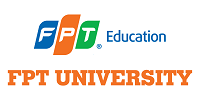Training Objectives
1.1 General objective:
Training bachelor’s degree students in Information Technology (IT)/Integrated Circuit Design (ICD) specialty to have the qualities and capacities to meet the needs of society; mastering professional knowledge and practice of ICD specialty, have the ability to organize, implement and promote the creativity in jobs related to the trained specialties; have the ability to pursue further education and research.
The training program aims to:
a) To equip students with fundamental knowledge of mathematics and the IT industry together with fundamental and specialized methodologies, technologies related to the ICD;
b) Train students in the necessary virtues and skills in the professional working environment, know how to apply specialized knowledge of the IT major and the ICD specialization into practical work;
c) Provide students with a strong foundation in foreign languages, science, culture and society, promoting their autonomy and creativity in study, work and life.
1.2 Specific objectives:
Graduates of the IT training program/ ICD specialization must demonstrate the following:
PO1. Having basic knowledge of social sciences, politics and law, security and defense, foundational knowledge of the IT industry & in-depth knowledge of the specialized training: techniques, methods, technologies, in-depth application areas; development trends in the world; at the same time understand the overall market, context, functions and tasks of the professions in the specialized training;
PO2. Be able to work as a full member of a professional team in the field of training: participate in designing, selecting techniques and technologies in line with development trends, solving technical problems; understand technology trends and user requirements; can do the complete solution development plan; performance management and change management in his or her part of the job; understand state policies in specialized fields;
PO3. Mastering professional skills and soft skills of 21st century citizens (thinking skills, work skills, skills in using work tools, life skills in a global society); at the same time, equip knowledge and sharpen the entrepreneurship mindset and entrepreneurial experience.
PO4. Can use English well in study and work and a second foreign language in normal communication;
PO5. Honesty, high discipline in study and work, know how to work independently as well as effectively in teams; know how to behave culturally at work and in society; dynamic, creative and willing to learn constantly. Demonstrate professional attitude and behavior with the ability to conceive of ideas, design, implement and operate systems in the context of corporation and society.
1.3 Job positions after graduation
Graduates of the ICD specialization have diverse job opportunities with a number of typical positions such as:
✔ Circuit architecture design engineer (digital, analog, mixed, etc.);
✔ Design analysis and evaluation engineer;
✔ Specialist in simulation and design verification using specialized tools;
✔ Engineer for specification documentation, design process development consultant;
✔ Graduate education;
✔ Start-up.
Program Learning Outcomes
|
|
PLO Name |
PLO Description |
| 1 | PLO1 | Understanding the basic knowledge of social sciences, political law, and national defense and security, contributing to the formation of a worldview and scientific methodology |
| 2 | PLO2 | Applying solid foundational scientific knowledge in the field of Information Technology in general and Integrated Circuit Design (ICD) in particular to understand the professional context and acquire deep specialized knowledge in ICD |
| 3 | PLO3 | Applying deep specialized knowledge in Integrated Circuit Design (ICD) to work and proposing solutions that meet diverse real-world needs |
| 4 | PLO4 | Having basic knowledge of planning and management, implementation, and monitoring the execution of plans for professional tasks in the field of Integrated Circuit Design (ICD) |
| 5 | PLO5 | Having an entrepreneurial mindset and the ability to apply entrepreneurial knowledge and skills to execute a startup project; possessing creative thinking, research skills, critical thinking, and problem-solving abilities |
| 6 | PLO6 | Having an intermediate level of English equivalent to level 4 and a basic level of Chinese equivalent to level 2 according to the 6-level foreign language proficiency framework used in Vietnam |
| 7 | PLO7 | Having the ability to communicate and present clearly to articulate issues that need to be addressed and convey knowledge and skills when performing specific/complex professional tasks related to Integrated Circuit Design (ICD) |
| 8 | PLO8 | Having the ability to program and use design, simulation, and evaluation tools in the field of Integrated Circuit Design (ICD) |
| 9 | PLO9 | Having the ability to apply various processes, techniques, and tools to analyze, evaluate, and verify electronic circuit and integrated circuit systems |
| 10 | PLO10 | Having the ability to update and utilize advanced tools and techniques in the field of Integrated Circuit Design (ICD) in particular and Information Technology in general |
| 11 | PLO11 | Develop the ability to work independently as well as effectively in a team in both academic and practical environments; take personal responsibility and responsibility for the group when performing a professional task. Have a spirit of self-study, lifelong learning, and adaptability to the continuous changes in technology and society |
| 12 | PLO12 | Behave professionally, ethically, with social responsibility and a spirit of community service; have professional responsibility and integrity in work |
| 13 | PLO13 | Be mentally and physically strong, be capable of expressing national identity and integrating confidently into the world. |
| 14 | PLO14 | Be able to plan, coordinate, and manage resources related to Integrated Circuit Design (ICD) projects; guide and supervise the implementation of project tasks, and at the same time, be able to evaluate the effectiveness of the project and propose feasible and effective solutions for improvement |
Volume of learning of the course
145 credits, excluding Orientaiton and General Training Program and Preparation English.
Enrollment object
✔ In accordance with regulations on formal university enrollment; college enrollment of the Ministry of Education and Training.
✔ In accordance with regulations on enrollment of FPT university.
Training process, graduating conditions
✔ In accordance with regulations on formal university and college training of the Ministry of Education and Training.
✔ In accordance with regulations on training of FPT University.
Evaluation method
✔ In accordance with regulations on examination and assessment in the training regulations of FPT University.



